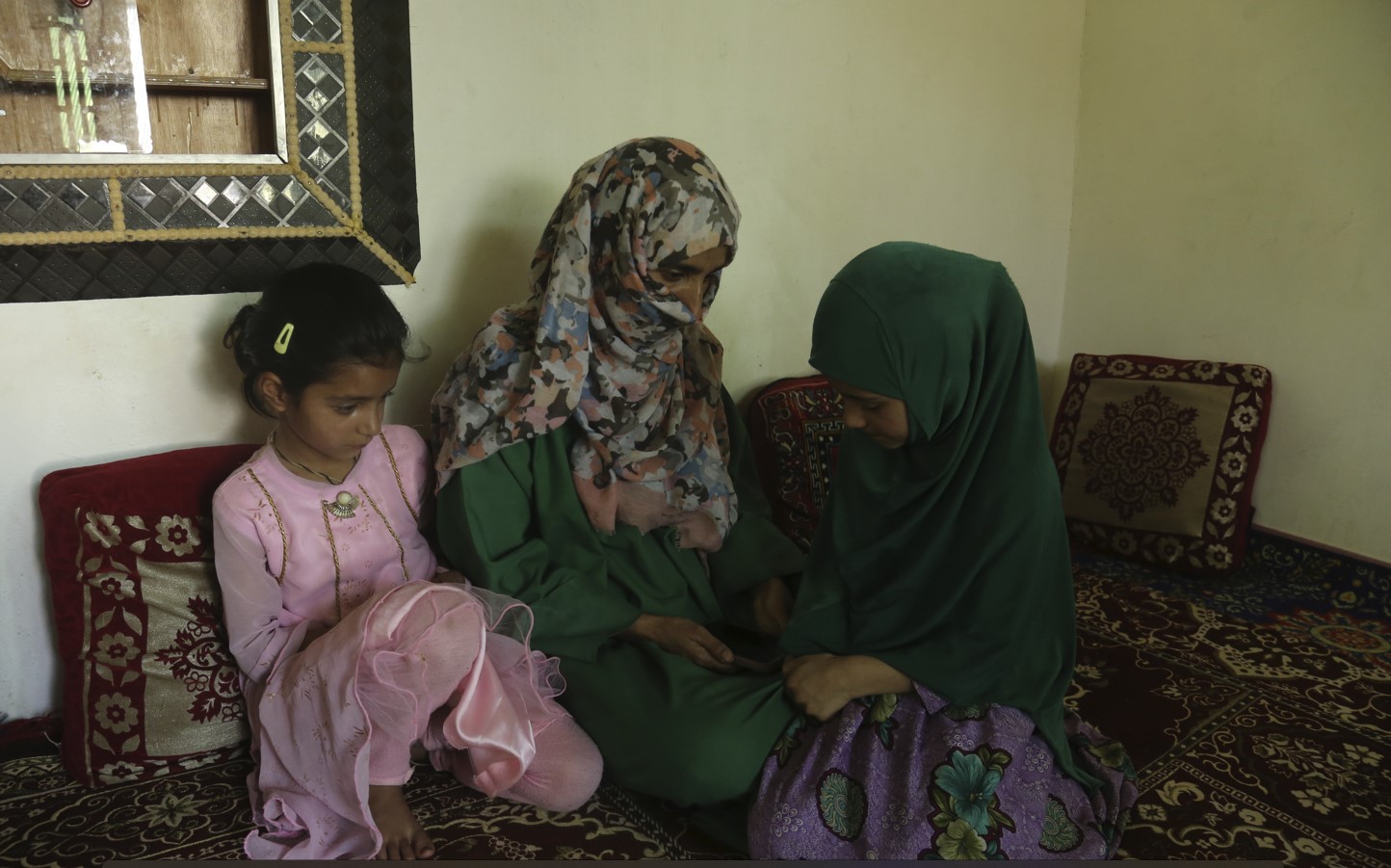Kashmiris celebrate 27th October every year as ‘Black Kashmir Day’. In this regard, see our special report from Srinagar, in which the families of the arrested Kashmiris spoke exclusively to Independent Urdu about their pain and anguish.
Since the abrogation of the special status of Indian-administered Kashmir on August 5, 2019, 379 Kashmiris involved in cases filed in the sensitive region are being held in remote jails outside the region.
They include politicians, businessmen, stone pelters and other alleged criminals. Most are in jails in Uttar Pradesh and Haryana, facing prolonged torture with delayed trials and no telephone calls or visits from families.
Nisar Ahmed Gani was arrested under Arms Act in Kashmir in 2020 and transferred to Gurgaon District Jail in 2021.
His sister told Independent Urdu that she has not seen her brother for the last four years. ‘The condition of our family is worse than bad and is becoming hell day by day, we are forced to literally beg for money from everyone. Most people refuse.
‘I am also sick and my family does not bear the cost of my treatment. We are dead inside. How can we express our feelings to anyone?’
He added: ‘I can’t afford to buy my daily medicines because we don’t have the energy to buy them. Every time I neglect my medication, my illness worsens.
‘My brother was the sole breadwinner of my family, who worked and fed our family, took care of our parents, no one came to help us except the local village administration.’
He requested the higher authorities and the government to facilitate the release of his brother.
Human rights activists, lawyers and families have called for the immediate release of those imprisoned on humanitarian grounds.
So is Sajjad Gul, who was arrested in 2022 for ‘resorting to violence and disturbing public peace’ in Kashmir. He was transferred to a jail in Uttar Pradesh in 2022.
His mother said: ‘During this time we face many difficulties, we cannot afford enough money to reach there (UP).
‘I am suffering from heart and head pain, how can I reach this state from my state?’
He pleaded: ‘May the management forgive my son as he has already gone through a tough ordeal. He was honest, he always spoke the truth, he never got into any kind of trouble.’
Sajjad Gul’s mother cried and added: ‘We are helpless as his old father is working day and night to feed his family, how can we afford to go there.’
‘When we go to court, no one hears our pain, even our case is not updated or heard.’
His mother also requested the state administration and government to facilitate the early release of her son.
This section contains related reference points (Related Nodes field).
Although many political leaders have been released, cases filed under the Public Protection Act (India’s anti-terrorism law) keep youths in jails thousands of kilometers from their homes.
The government claims that 444 people have been detained under the Jammu and Kashmir Public Safety Act (PSA) since August 5, of which 408 were held in jails outside Kashmir. 29 of them are foreign nationals while 379 are Kashmiris.
Due to poor financial conditions, many families of youths in prisons have not been able to afford to visit their sons for the past several years.
On the other hand, Bharatiya Janata Party (BJP) senior leader Altaf Thakur says that there is no place for terrorism in Kashmir.
He insists that among those imprisoned were ‘terrorists who spread hatred here and who also get funding to spread unrest in Kashmir and destroy everything in their path. They were sent to their real places where they especially deserved the prisons.’
Altaf Thakur said that there is no place for stone pelters and terrorists in Jammu and Kashmir and they do not exist here. ‘We gladly admit that we have tried very hard to deal with these miscreants. If anyone disturbs the peace in this state, we will double it.’
Authorities view Jammu and Kashmir’s jails as a breeding ground for extremism and moving Kashmiri prisoners out of the region is part of a security strategy to prevent radicalization of alleged criminals.
Some reports say that prisons have been misused to spread militant activities through phones and social media.
On April 29, 2023, the Jammu and Kashmir and Ladakh High Court had said that only a magistrate or court has the power to transfer a prisoner awaiting trial from one jail to another.
The mother of Nisar Ahmed Gani, who was arrested in 2020 in an Arms Act case in Kashmir and shifted to Gurgaon District Jail in 2021, says her son has been imprisoned in Haryana’s Gurgaon for the past four years.
‘We thank Allah first and then our neighbors, who provided us with all kinds of help and financial support.
‘We sometimes see him online via video call but he refuses to speak to us, even his face is not clearly visible. I have not seen my son for the last four years.
She added: ‘I’m going mad, they’re not even showing his face, it’s being denied. If I could afford to travel, I would travel to the prison, but we are out of money, there is nothing we can do. My son was the sole breadwinner of the family.’
In September 2022, then Director General of Prisons HK Lohia had said that the transfer of prisoners from Jammu and Kashmir to jails in other states was an ‘administrative exercise’ as the jails were overcrowded.
Note: The names of the families of these Kashmiri prisoners are not being included in this report at their request.
#Black #Day #suffering #families #Kashmiris #imprisoned #homes
2024-05-06 10:53:07








